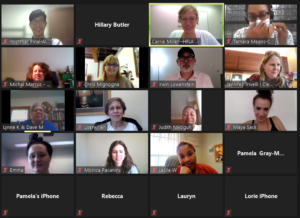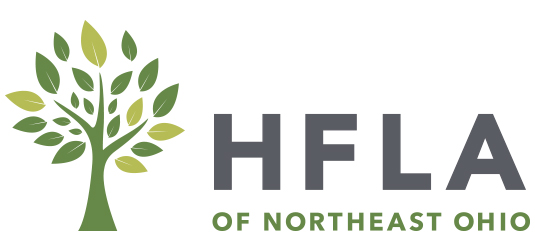HFLA & Common Ground
A Conversation about "People, Place, and Shared Power."
What does Female Financial Empowerment Look Like and How Do We Achieve It?
HFLA of Northeast Ohio (HFLA) has been providing interest-free loans to residents in Northeast Ohio who would not otherwise have access to traditional capital for 117 years. We lend to those that are facing short-term financial emergencies (a car repair or utility shut-off, for example), those needing to close the gap on tuition for higher education, or those starting their own business.

In July, HFLA hosted a Common Ground conversation about Female Financial Empowerment as part of the broader theme of “People, Place, and Shared Power.” Several members of the HFLA staff and board had recently watched an early screening of the documentary, $avvy. This film explores the fact that women have abdicated ownership of their finances to other people and why this is happening. This made us re-evaluate our loan history. It shed new light on the fact that the majority of borrowers–current and in recent history–are a majority women. It also got us thinking that we needed to bring our conversation to the broader community.
As we considered these numbers in the context of $avvy, we began to better understand these numbers in their environmental context.
There were things we already knew: women typically earn less and live longer than men. They are often shepherded into careers with lower earning potential and are often the ones in and out of the workforce to care for children or other family members (hello, 2020). The things we didn’t know, or didn’t immediately consider were (among many other things) that the largest group of women least engaged in their personal financial futures are Millennial women.
Women receive less financial education than their male counterparts and are given social cues that things like investing and finance are not “for them.”
We asked the group of mostly women, what financial empowerment looked like to them and the responses were varied, and led to a robust conversation. 
- It means the daily needs are met.
- One is able to plan for the future.
- Have a vision for the future and act upon it of your own will.
- Being able to have conversations about money free of shame.
- There is the curated, social media picture of how people are doing vs. the reality.
- The perception of one being financially secure and independent.
- Being able to ask for help free of shame.
- For example, it is important to share information about income in order to understand how you are valued as compared to others.
- Empowerment is also about knowing your finances, being self-sufficient, and independent.
The conversation that continued from this discussion emphasized the need for us, as a community, to remove the shame associated with financial conversations. In doing so, we are able to find ways to better support women as a community. If we remove the stigma around asking for help–financial or otherwise–we are able to develop creative ways to support each other. The thing I most appreciated about this conversation was the intergenerational aspect. It was interesting to hear about the different experiences of women of different ages and experiences as well as the sharing of sage advice. The other thing that was interesting was the universal sense of community and the desire to continue building on this feeling. HFLA plans to continue this conversation in order to continue building on these feelings and relationships.
Part of this will be hosting smaller conversations over the coming months. We will also be hosting a free screening of $avvy. The message of this documentary is important and we want as many people as possible to see it. Here is the link to the trailer. We hope that you will join us in October. We will also be hosting a panel discussion with the film’s director and local experts. Learn more and register for one, or both events here. In the meantime, please stay tuned as we work with the community to find ways to keep the conversation-and the support-going.
